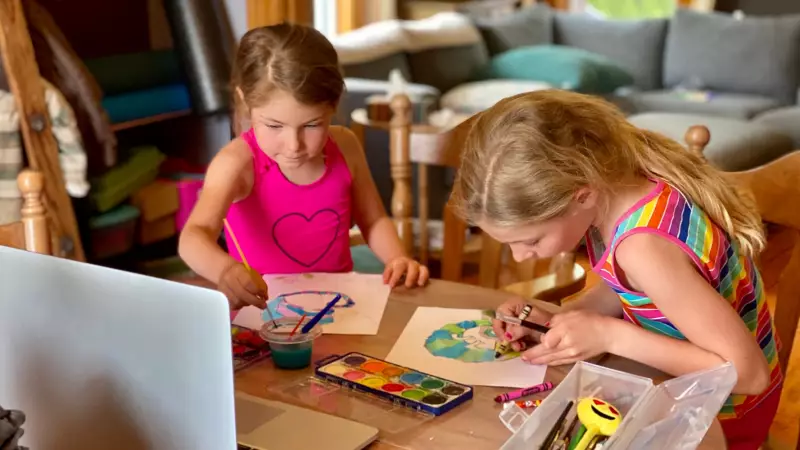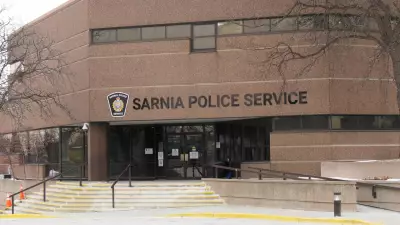
Scrolling through TikTok or Instagram, you will likely encounter Canadian families documenting their "unschooling" lives. These posts show children learning through nature walks instead of textbooks, kitchen experiments instead of science labs, and daily life instead of daily lessons. The idyllic scenes of kids painting in sunlight and teens coding in cafés are often captioned with the movement's unofficial mantra: "Life is learning."
On paper, this philosophy prioritizes true learning over testing and grades. Yet, those who have lived it—unschooling alumni—have deeply mixed feelings about their experiences.
Two Sides of the Same Coin: Freedom vs. Isolation
Unschooling, a form of homeschooling that removes formal curriculum entirely to emphasize child-led, self-directed learning, is gaining renewed attention in Canada. As parents increasingly question traditional education systems, some see it as the purest form of learning. Others worry it is educational neglect in disguise.
For Calvin Bagley, unschooling was not a choice but a form of captivity. "I grew up in the Utah desert, where my parents pretended to educate us, but in reality, they were just isolating us from the world under the guise of religious protection," he said. By age ten, all pretense of learning had vanished, replaced by chores, farm labor, and fear.
"We hid from the school bus every morning because we were told school was evil, and I believed it," Bagley continued. He describes his upbringing as "no-schooling," which stripped him of connection, curiosity, and a formal childhood. Now the author of "Hiding from the School Bus," Bagley says the experience left deep scars but also forged a hard-won resilience and "survival intelligence."
His transition to college was profoundly difficult. "I had never written a paper or taken a test before. Every class felt like a new language I had to learn from scratch," he shared. While this background made him resourceful, he unequivocally states he would not choose it again. "My version wasn't freedom, it was captivity."
In stark contrast, Amanda Schenkenberger's unschooling experience was one of nurtured freedom. Growing up on a ranch, her days involved reading, math, chores, and ample outdoor time.
"Unschooling taught me how I learn best," Schenkenberger said. "Because I had the freedom to explore at my own pace and follow my curiosity, I became a great researcher and problem-solver." She acknowledges skill gaps, particularly in essay writing, which she had to overcome later. However, she thrived socially and professionally, landing her first job at Starbucks at 16, where her strong work ethic was commended.
Now a homeschool mom and coach herself, she and her husband are raising their four boys with a balanced approach she calls "freedom with a foundation," focusing on core subjects while allowing plenty of time for exploration.
Expert Insights and Research Findings
Unschooling has its roots in the educational reform movements of the 1960s and ’70s, popularized by educator John Holt. The core belief is that children are naturally driven to learn if adults do not interfere.
Kirsten Horton, an educator with experience in Montessori and independent schools, explains that unschooling is more improvised and student-led than other models. "The model can 'spark intrinsic motivation and agency'," she notes, but cautions that not every child thrives in such an open environment. Some may struggle with the lack of structure or self-regulation required.
Her conclusion is clear: "Children learn best when curiosity, structure and connection coexist."
Education researcher Curby Alexander notes that long-term studies on unschooling are limited but show mixed results. Citing work by Peter Gray and Gina Riley, he mentions that 83% of unschooled respondents attended a post-secondary school, with half reporting advantages like self-direction and determination.
He shares an anecdote of an unschooled child who taught himself to read in weeks to access Minecraft forums, illustrating that "unschooled children learn skills and knowledge when they desire to do so." However, Alexander is skeptical it can work on a large scale. "Perhaps unschooling works because it involves such a small number of people... It will always be a good option for some families, but I do not believe it will ever be the best option for everyone."
The Bottom Line: Balance is Key
Cindy Chanin, founder of Rainbow Education Consulting, observes that the rise of unschooling reflects a broader cultural shift. Parents are seeking more meaning and flexibility, moving away from a "fixed map" for learning.
"When it's 'thoughtfully supported,' unschooling can nurture a strong sense of intrinsic motivation," Chanin said. "The key is how intentionally adults are creating an environment that supports autonomy without letting kids feel adrift."
She sees unschooled students often thriving in creative or entrepreneurial fields, comfortable with forging unconventional paths. However, she does not idealize the model, stating its success depends entirely on the child, family, and support system.
Unschooling, much like the children it serves, resists a one-size-fits-all conclusion. For some, it fosters unparalleled freedom and creativity. For others, it leaves painful educational and social gaps. The glossy social media portrayals reflect a deeper anxiety about the state of education: over-testing, student burnout, and a growing distrust of traditional institutions.
As Calvin Bagley poignantly summarized, the line between healthy freedom and harmful neglect often comes down to one simple thing: care. "When they call for help from the top of a playground slide," he said, "someone comes running. That's the difference between control and care."





